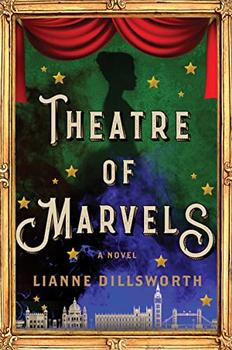Summary | Excerpt | Reviews | Beyond the book | Read-Alikes | Genres & Themes | Author Bio

The year is 1726 and the sleepy town of Godalming has been rocked by scandal. Called to the bedside of Mary Toft, surgeon John Howard watches in horror as she appears to give birth to the dismembered body of a rabbit. Miracle or abomination, the events draw attention from respected doctors and tongue-wagging gossips alike. Worse still, the birth proves to be the first of many. Summoned to London by the King himself, there is only so long Mary can insist upon the integrity of her story; just as those who offer to help her cannot mask their own pursuits of fame and fortune indefinitely.
Despite being the book's eponymous heroine, and the nucleus around which the entire narrative revolves, it's important to note that Mary is not the one telling us her story. Her weary perspective is confined to a couple of chapters — the rest being relayed to us by a chorus of male doctors and clergymen who claim knowledge of the female body far beyond their means. Set during a time of societal flux and scientific breakthroughs, these men are trying to reconcile newfound medical insight with their long-held religious beliefs. Mary's astonishing case forces them to confront their doubts head on — the spectacle of her body and the notoriety her doctors stand to gain from understanding it prove far more interesting to them than the plight of the woman within.
Mary's gendered silence serves as a key entry point into Palmer's look at the socioeconomic hierarchy that dictated people's lives at the time – and which continues to resonate today. As men swoop in to wrest control from Mary, a representative of the church stakes his claim on the case, while the King instructs the learned, wealthy doctors of London to take over from the presumably ill-equipped country folk. In many ways, it becomes a book about dualities forced into direct conflict. It's about men versus women, and science versus religion. It's about the rich versus the poor, and so-called normality versus the "Other." It's about truth versus lies, and professional integrity versus personal pride. Above all else, it asks the reader to consider the disturbing extremes those at the bottom of the social ladder can resort to in a vain attempt to have their voices heard and their worth affirmed.
Though being banished to the periphery of her own story is an effective means of highlighting the lack of agency someone like Mary would have had, she is undoubtedly the lynchpin of the novel. As such, the focus is lost briefly when our heroine and her troupe of doctors first travel to London and Mary's role is reduced even further to make way for various subplots. This reflects the idea of the individual being swallowed up by the homogenous nature of the big city, and allows Palmer to show how quickly crowd mentality can fan the flames of fiction, but it causes unnecessary distraction from the tension and intrigue of the core narrative. Consistent throughout, however, is the strength of Palmer's prose. There's an ornate quality to his use of language that reflects the formalities of the period. It also feels in keeping with the air of dark whimsy suited to a story fueled by the tradition of folktales.
It's hard to believe events this provocative had been largely lost to time. By once again breathing life into Mary Toft's extraordinary story, Palmer gets to the heart of our enduring struggle to overcome the lies we tell each other — and the lies we tell ourselves — to appreciate our shared humanity.
![]() This review was originally published in The BookBrowse Review in January 2020, and has been updated for the
November 2020 edition.
Click here to go to this issue.
This review was originally published in The BookBrowse Review in January 2020, and has been updated for the
November 2020 edition.
Click here to go to this issue.

If you liked Mary Toft; or, The Rabbit Queen, try these:

by Lianne Dillsworth
Published 2023
Set amid the bustle of Victorian London, an irresistible story of an ambitious young Black actress, an orphan from the slums who has finally achieved a dubious stardom as "The Great Amazonia, a savage African queen" - but everything she has fought for depends on hiding the secret of her own identity.

by Clare Beams
Published 2021
Sarah Waters meets Red Clocks in this searing novel, set at an all-girl school in 19th century Massachusetts, which probes the timeless question: who gets to control a woman's body and why.
Your guide toexceptional books
BookBrowse seeks out and recommends the best in contemporary fiction and nonfiction—books that not only engage and entertain but also deepen our understanding of ourselves and the world around us.